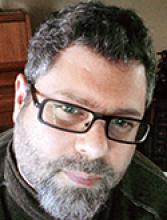Over the past few years, I’ve been inundated with stories, statistics, articles, books and documentaries chronicling the mass exodus of people leaving the church.
The most recent to make waves was a blog post published several weeks ago by Donald Miller, a best-selling Christian author, explaining why he doesn’t attend church any more. Although I don’t agree with him in many areas, I applaud him for initiating an honest and open conversation on why he and millions of others in North America no longer think attending church is good stewardship of their time. I’ve come to understand many Christians make the decision to stop attending church because they value their faith and relationship with God.
The response of “church loyalists” to the phenomenon of church abandonment has been all over the map. Some Christians are angry that so many are leaving the church, while others are afraid. Some are in denial, while others are grieving and losing hope. Some blame contemporary culture, universities, the media, postmodernism, individualism and everything else under the sun—except themselves, usually—while others are desperately trying to adapt and attract people to their church by incorporating more technology, pop culture, or socially “relevant” issues and causes into their gatherings and programming.
Some churches are studying and researching the 21st-century missional context, asking tough questions about the evolving role of the church in our world, and experimenting with new ways of doing and being church, while others are convinced the solution is found in getting back to the old “tried and true” ways of the past.
I suppose most of these responses have their appropriate time, place and setting, but I’m not sure how helpful any of them will be on their own in the long run. What is most interesting to me in this unsettling season for the church is discerning where God’s Spirit is during this mass exodus.
Are the millions of Christians who are leaving the church running away from God’s Spirit? Or are they embarking on a journey into the unknown and the unfamiliar in an attempt to reconnect with God’s Spirit and renew their faith and spiritual life?
Could it be, at least for some people, that the church has come to represent the bondage of Egypt, and the Holy Spirit is the one beckoning them into the wilderness to worship their true God? What a sobering thought—that God’s Spirit might be saying to us, the church, “Let my people go, so that they may worship me in the wilderness” (Exodus 7:16)
For many ex-churchgoers, the Divine Spirit has literally called them into the wilderness, into nature, away from all the noise, consumerism and busyness of work, life and church, to be still and know God. I empathize with this. As I get older, spending time in solitude surrounded by nature has become essential to my own spiritual well-being and sanity. Of course, equally important to my faith and spiritual growth is being part of a community, experiencing togetherness, spiritual friendship and serving others. But do we need church for this? I suppose that depends on how we define church.
So what makes a community a church? Do we have to sing together? Do we have to gather on Sundays? Does everyone have to believe the same doctrine?
I believe many of our current versions of church will become extinct during the 21st century. As a pastor who makes his living through the current church paradigm, I may very well belong to one of these extinct versions of church. On some levels, this concerns me, but my faith in God gives me the courage to let go of my desire for certainty, security and familiarity, and to be willing to follow where the Spirit is moving.
My calling is, among other things, to be attuned to God’s Spirit and to help others enter into deeper communion with the Divine Spirit. So if that means blessing people who leave the church to reconnect with God in the wilderness, I will. But I also hope I’m part of a church and denomination that is actively creating new opportunities for more people to attune themselves to the Divine Spirit in empowering ways and is willing to be honest about how our current forms, beliefs and practices hinder us in this.
Donald Miller recently asked a question in a follow-up post on his blog: “If the Holy Spirit were pastor of a church, what would that church look like?”
These are the kinds of questions we need to be asking. Because if the focus of the church becomes the church, I’m not sure I want to help it survive.
Troy Watson is pastor of the Quest Community in St. Catharines, Ont. This article is part of a series on “Spirit attunement.”
—Posted Feb. 26, 2014
See also:
Part 1 (Sept. 30. 2013 issue)
Part 2 (Oct. 28, 2013 issue)
Part 3 (Nov. 25, 2013 issue)
Part 4 (Jan. 6, 2014 issue)
Part 5 (Feb. 3, 2014 issue)



Add new comment
Canadian Mennonite invites comments and encourages constructive discussion about our content. Actual full names (first and last) are required. Comments are moderated and may be edited. They will not appear online until approved and will be posted during business hours. Some comments may be reproduced in print.